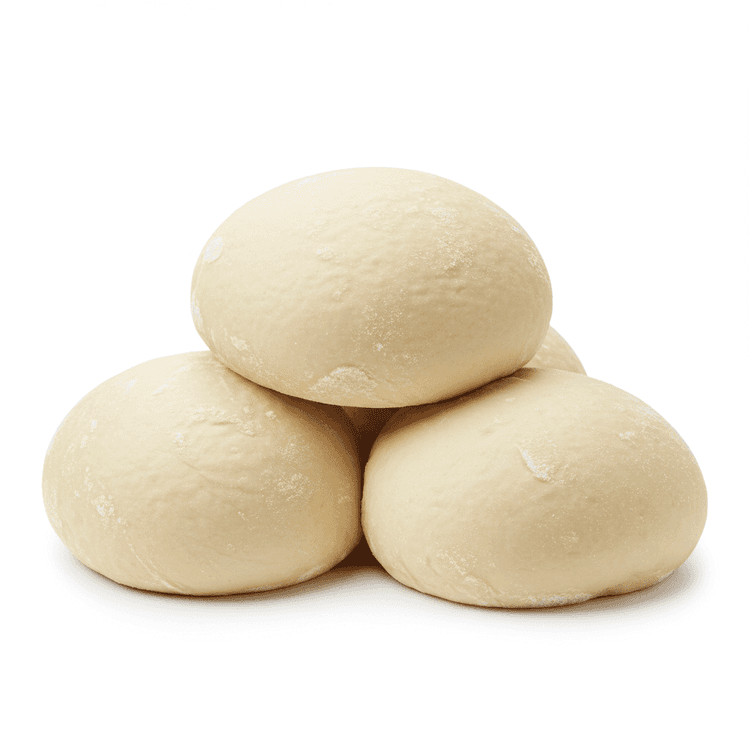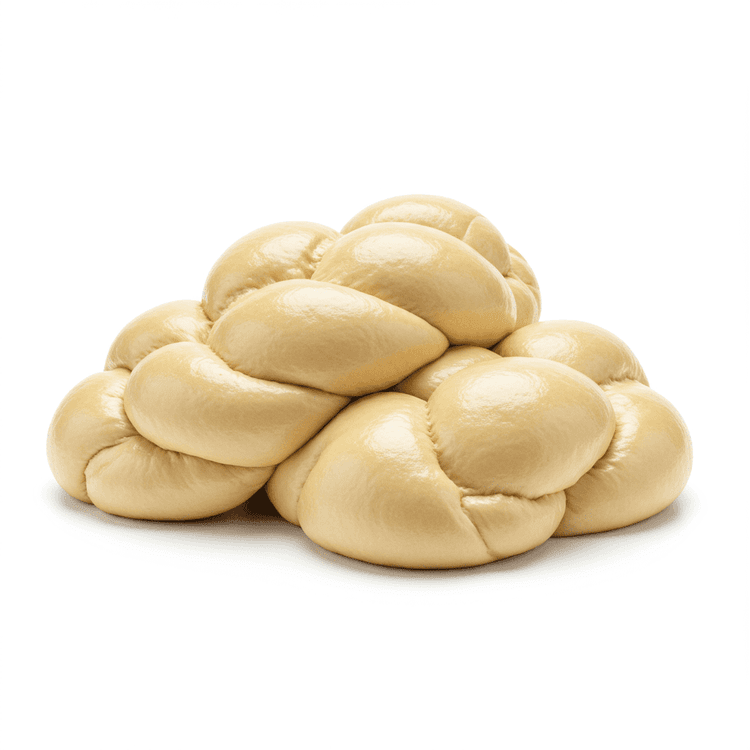
Dough
Dough is a versatile mixture of flour, water, and often other ingredients like yeast, sugar, salt, or fats, used as the foundation for countless baked goods and savory dishes. It can vary in texture from soft and pliable to firm and elastic, depending on its purpose, such as bread, pizza, pastries, or pasta. Dough is typically pale in color and transforms into golden, crispy, or fluffy textures when baked or fried. This essential kitchen staple is a cornerstone of global cuisines, offering endless possibilities for both sweet and savory creations.
Common Uses
- Used as the base for making homemade bread, including sourdough, whole wheat, and artisan loaves, by allowing it to rise and baking it to perfection.
- Rolled out and shaped to create pizza crusts, offering a chewy or crispy base for various toppings.
- Prepared as pastry dough for pies, tarts, and quiches, providing a flaky and buttery texture.
- Used to make fresh pasta by kneading, rolling, and cutting it into desired shapes like spaghetti, fettuccine, or ravioli.
- Fried or baked to create snacks like doughnuts, pretzels, or empanadas, offering a variety of textures and flavors.
- Shaped into flatbreads such as naan, tortillas, or pita, which are staples in many global cuisines.
Health Benefits
- Dough is a versatile base for many recipes, providing carbohydrates for energy and serving as a staple in various cuisines.
- Whole-grain or enriched dough options can offer added fiber, vitamins, and minerals for a more nutrient-dense choice.
- Homemade dough allows for control over ingredients, making it possible to reduce sodium, sugar, or unhealthy fats.
- It serves as a canvas for creative cooking, from bread and pizza to pastries and dumplings, catering to diverse dietary preferences.
- Fermented doughs, like sourdough, may support gut health due to the presence of natural probiotics.
- Gluten-free dough alternatives are available for those with gluten sensitivities or celiac disease, ensuring inclusivity in diets.
Substitutes
Chefadora AI is here.
Experience smarter, stress-free cooking.
Storage Tips
Store fresh dough in an airtight container or wrapped tightly in plastic wrap to prevent drying out. For short-term use, refrigerate it for up to 2-3 days. For longer storage, freeze the dough in a sealed freezer bag or container, ensuring it is well-wrapped to avoid freezer burn. Thaw frozen dough in the refrigerator overnight before use. Always allow refrigerated or frozen dough to come to room temperature before shaping or baking for best results.
Marnirni-apinthi Building, Lot Fourteen,
North Terrace, Adelaide, South Australia, 5000
Australia

